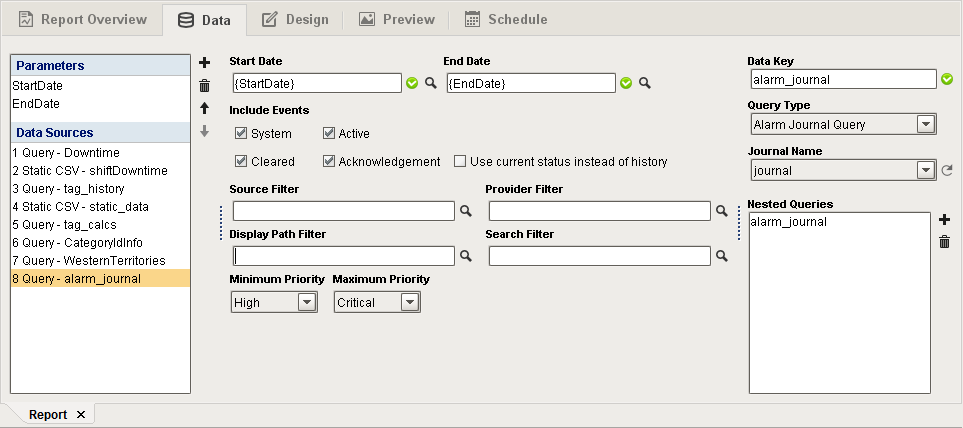Alarm Journal Query
The Alarm Journal Query data source is a simple way to access Alarming data within a report. It can pull from both the alarm journal data in the database as well as the current live events that would show up in the Alarm Status Table.

Once created, the new Data Source will expose many alarming related keys in the Design Panel's Key Browser
Properties
The Alarm Journal Query has a few properties that can be configured to filter the types of events you see in the returned dataset.
| Properties | Description |
|---|---|
| Start Date and End Date | The time range from which to pull Alarms from. Start Date being the furthest date in the past, while End Date is the most recent date. |
| Include Events | Allows you to select which type of events will be returned. The options are
There is also a Use current status instead of history checkbox. As the text implies, this will use the current alarm status |
| Source Filter | Will filter the alarms based on the source path. Multiple filters can be specified by separating them with a comma, and they accept the wildcard ( * ) symbol. Works in the same way that the filters on the Alarm Status Table component work. |
| Provider Filter | Will filter the alarms based on the Tag Provider that they originate from. Can specify multiple filters by separating them with a comma. |
| Display Path Filter | Will filter the alarms based on the display path. Multiple filters can be specified by separating them with a comma, and they accept the wildcard ( * ) symbol. Works in the same way that the filters on the Alarm Status Table component work. |
| Search Filter | Will filter alarms by searching for the given string in both the display path and source path. Accepts comma separated paths. |
| Minimum Priority and Maximum Priority | The minimum and maximum priority of alarms that will be returned. |
| Journal Name | Located on the right side, this property allows you to specify the Journal that will be used for the query. |
